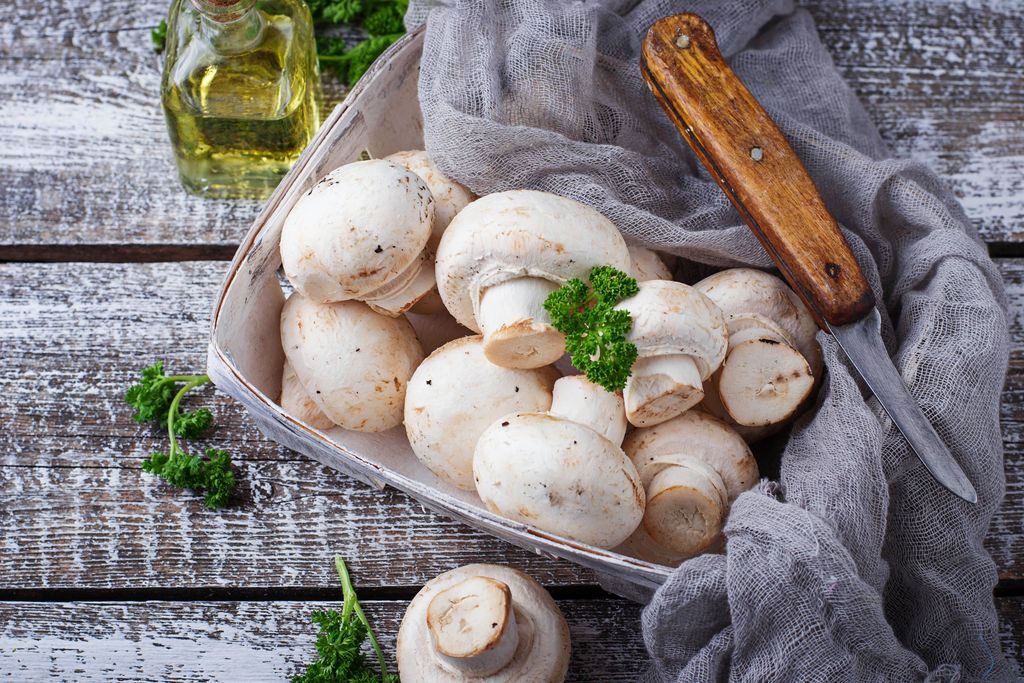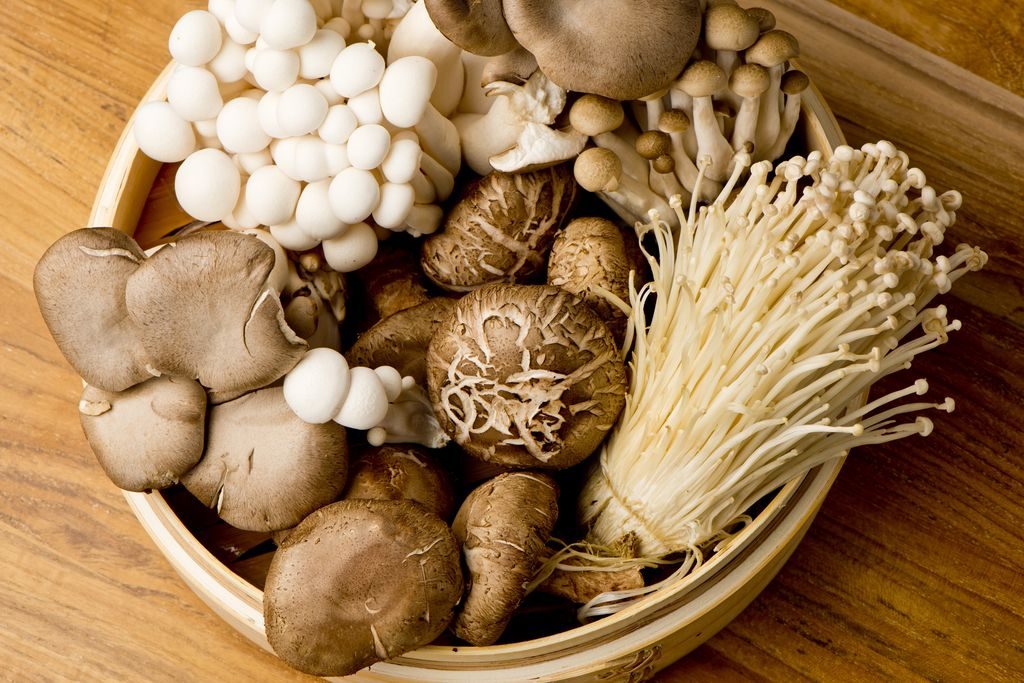Mushrooms
Mushrooms come in all shapes and sizes and can be used in lots of different recipes.

Mushrooms are a type of funghi and they come in many different shapes and sizes! They can be farmed and found in the wild. Wild mushrooms sometimes can be poisonous so unless you know what you are doing it’s best you get your mushrooms from the shops rather your garden!
Mushrooms can be sauteed and added to risotto or pasta sauces. They are also a common ingredient in soups, curry, rice dishes and chilli! Grilled mushrooms are fantastic on toast and make a quick and delicious breakfast option! You can also try roasting mushrooms with other vegetables in the oven.
Types of mushrooms

There are many different varieties of mushrooms, some of the most popular kinds are:
- Champignon – these mushrooms are extremely versatile, they are great pizza toppings. They are small and white.
- Cremini – are slightly more mature champignon mushrooms. They are slightly larger and the colour has changed to a brown colour. Their flavour is slightly earthy.
- Portobello – are large brown mushrooms, they are produced by allowing champignon to grow and mature. Because of their size and texture portobello mushrooms are commonly used as a meat substitute.
- Oyster – commonly used in Asian cooking, it has a broad, fan or oyster-shaped cap that can grow up to 25cm!
- Morel – Have a honeycomb shaped cap that range in colour from light brown to yellow with white stalks. Due to difficulties in cultivation, they are mostly found in the wild. Morel mushrooms should always be cooked before eating.
- Chanterelle – They are among the most popular of wild edible mushrooms. They are orange, yellow or white, meaty and funnel-shaped.
- Enoki/Enokitake – these mushrooms have a resemblance to bean sprouts, they can be eaten cooked and raw. They are commonly used as a garnish.
Nutritional information
Mushrooms are packed with vitamins and minerals, they are a good source of fibre, protein and antioxidants.
Mushrooms are a low-calorie food, there are about 22 calories per 100 grams of mushrooms. Mushrooms are low in carbohydrates making them a great option for keto diets.
It is safe to eat cooked mushrooms during pregnancy, however, it is best to avoid eating raw mushrooms.
Mushrooms are really rich in B vitamins, they help your body extract energy from food and encourage the production of red blood cells. When exposed to the sun they also contain some levels of vitamin D.
They are packed full of potassium which is essential for muscle repair and the nervous system. What’s more, potassium may help reduce blood pressure and water retention.
Recipe suggestion: Pizza




